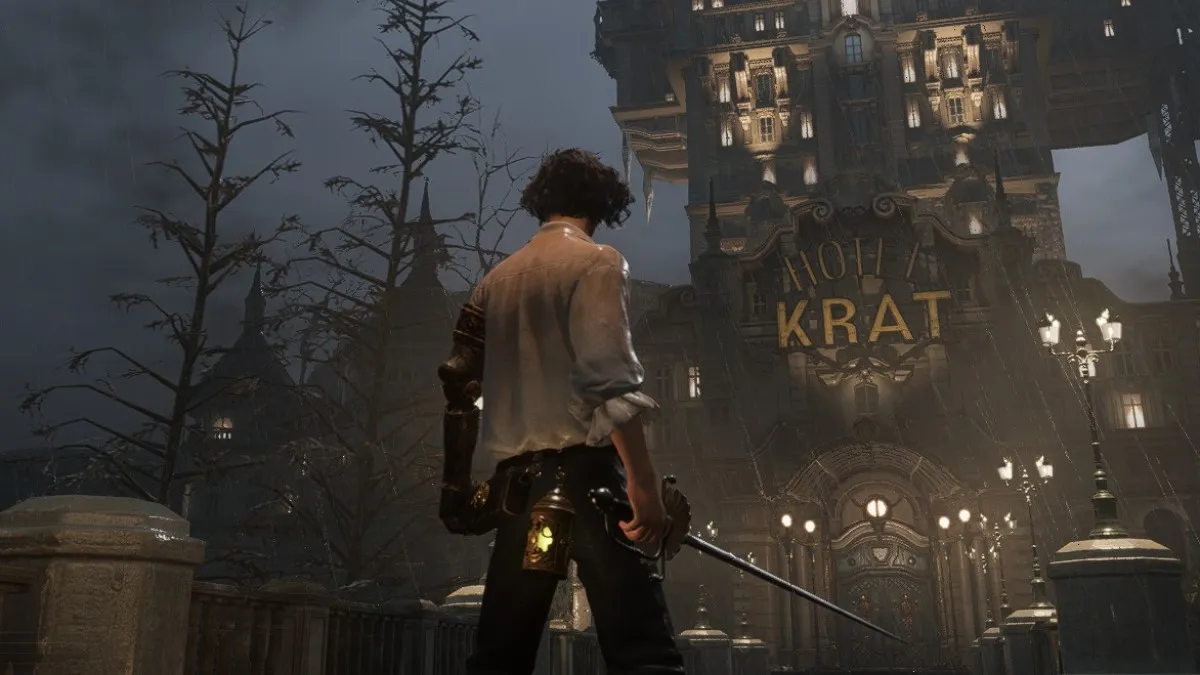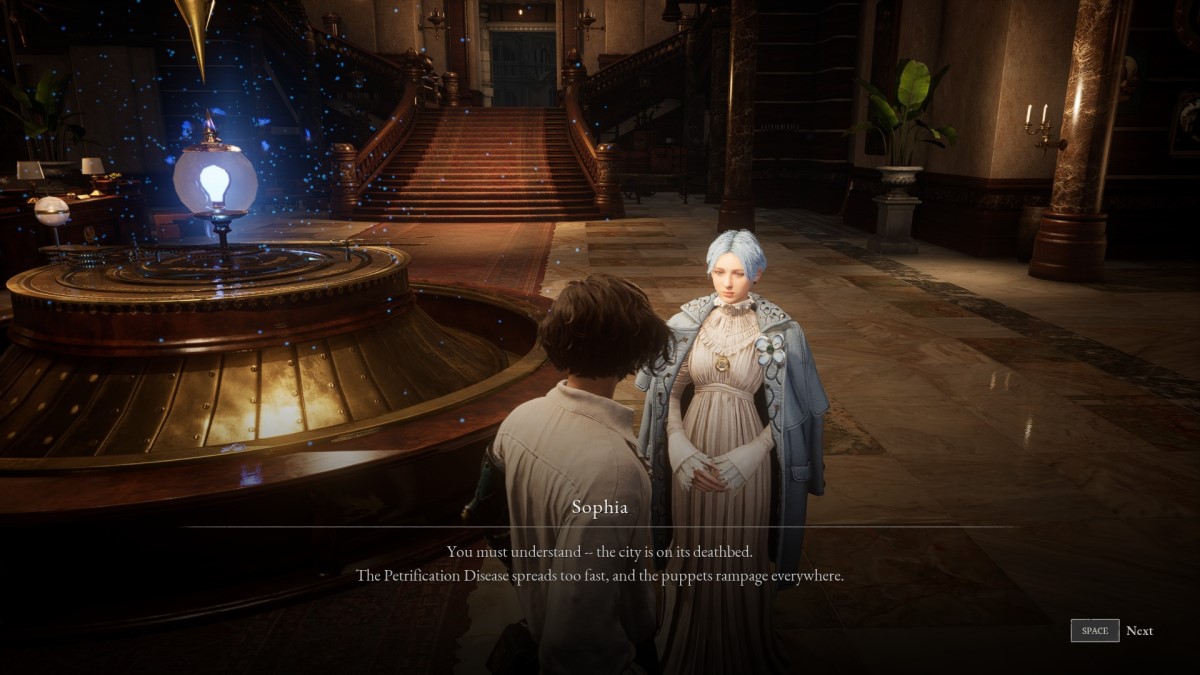The subject of player convenience is, whether we like it or not, baked deeply into modern game design discourse at all levels. Any feature that introduces a modicum of friction, or interferes with the player’s perceived goals in the game, is derided as bad design, and hoisted on a social media cross for all to jeer at. These spectacles draw large crowds, who pour their shared sentiments into the comments until the inevitable overflow forces the developers to take action, and compromise on part of their original vision. In this sense, game design has become a democracy in the worst possible way.
Examples of this can be seen in the majority of new releases, but one in particular has stuck in my craw of late: Lies of P. As the latest entry into the ‘Soulslike’ sub-genre, a breed of third-person ARPGs that draw heavily on FromSoftware’s punishing catalog, I had high hopes going in. I’ve enjoyed all of From’s games, and many of their imitators, and was keen to see whether the game could overcome its atrociously-localized title to deliver a great experience. Answer: yes, but not in the way I’d hoped.
If you’ve played a Souls game, or a Soulslike, before, much of Lies of P will be as you expect. You navigate intricate 3D environments, fight enemies in reaction-based combat where blocking and dodging are king, collect items, unlock shortcuts, chat to bizarre NPCs, and stare down massive bosses. All of these key ingredients are present, and are, for the most part, very satisfying to engage with, but they lack much of the original context that made them such great features in the Souls games where they debuted.
How Lies of P misses the point of Soulslikes with its streamlined systems
Heart and soul
In the beginning, Souls games were all about immersing the player in a brutal, unyielding world. There was extremely limited fast travel, incredibly harsh punishments for death, and a ruthless permanence to your decisions with regard to your build and stats. This created an intoxicating cocktail where your decisions held huge amounts of weight, but you simultaneously had little idea how those decisions would pan out, or even if you were making one, when they actually occurred.
These systems were not ‘fun’ to engage with in the traditional sense, but they served the goals of their respective games perfectly, Lack of fast travel meant that resting at a bonfire checkpoint was a double-edged sword; losing all of your Souls upon death punished you for being reckless and treating the game like a standard action experience; permanence in builds made you really think about each level you invested, and consider all of your options before locking in your choice.
In short, they made the games feel heavy; for most of your time with these early titles, you’d be unbelievably tense, which made the eventual release of a victory over a difficult boss exhilarating. That feeling is one of the primary reasons the Souls games, and their descendants, grew to be so popular, but it only works when the systems around it are geared towards putting you in an appropriately harried headspace first: something that Lies of P utterly fails to do.
Pretty Little Liars
In Lies of P, you’re given far too many safety nets to ever feel truly worn down by the game. There’s no chance of getting lost, since you can fast travel between every checkpoint and view the locations of NPCs on the map. There’s no punishment for mismanaging your stats, since you can swap weapon scaling and even respec entirely later on. Rather than getting one chance to retrieve your dropped Souls (Ergo in this case) after death, you get several, with small losses after each subsequent death. Every system is explained in detail by non-diegetic prompts, erasing the opportunity for any sense of mystery or intrigue to develop around them.
These changes make the game feel much smoother to play, and prevent players from getting truly stuck during their quests, but the trade-off is that they also prevent the world of Lies of P from feeling truly alive. While playing, you’re under no illusions that you’re playing a video game, and one where everything is catered towards your experience of it to boot. Appropriately enough given the Pinocchio theming, it feels like a kids ride at Disney World in comparison to the bleak worlds that inspired it.
The Souls games are remembered for their stamina-based combat systems and grandiose boss fights, but their true innovations were in pushing back against the rising tide of convenience that dominates modern gaming, and showcasing the power that friction and obtuse systems have when it comes to building a fully-realized, immersive world. Moving forward, developers like Neowiz need to consider what made these games work in the first place, rather than pandering to the needs of players who rarely know what they actually want.











Published: Oct 3, 2023 11:01 am